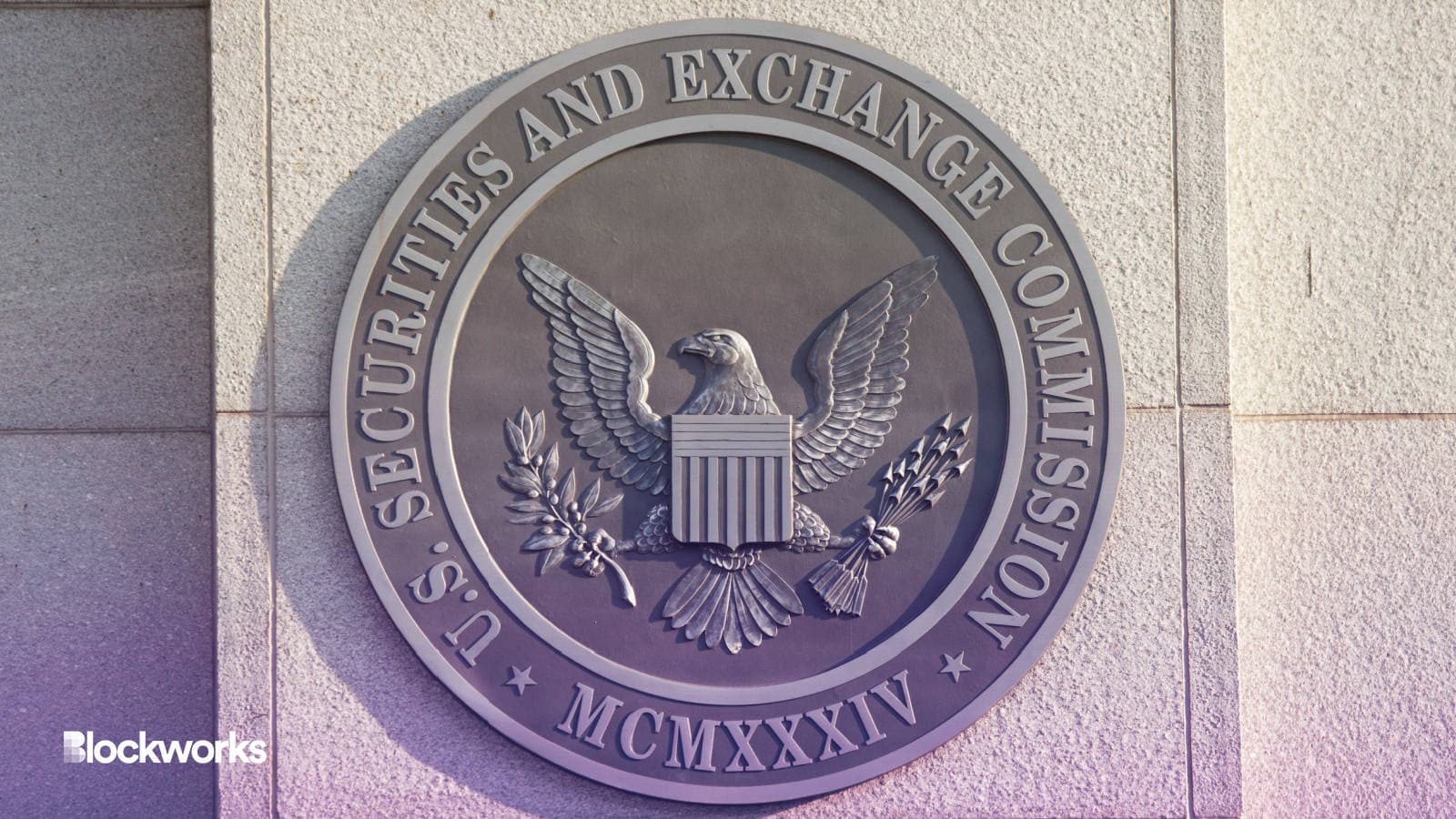‘SEC investigation’ leads Ethereum DeFi protocol BarnBridge to order halt
BarnBridge legal counsel has urged all work to stop amid a non-public SEC investigation into the DAO

Mark Van Scyoc/Shutterstock modified by Blockworks
DeFi protocol BarnBridge says it has drawn attention of the US Securities and Exchange Commission (SEC), although has stopped short of explaining exactly what for.
In a Discord screenshot, later tweeted by BarnBridge’s official handle, elected legal counsel Douglas Park said the DAO and associated individuals were under SEC investigation.
“Because the SEC’s investigation is ongoing and non-public, I am limited in the information that I will share publicly,” Park said. The update was later confirmed by BarnBridge CEO Tyler Ward.
BarnBridge products, powered by Ethereum, focus on tokenizing risk exposure. They aim to provide crypto users new ways to hedge their positions. Blockworks has reached out to BarnBridge for comment.
In a bid to reduce further legal liability, BarnBridge is shutting all existing liquidity pools (deployed to Ethereum, Arbitrum and Optimism) while restricting the creation of new ones, per the statement. About $1.2 million is currently in those pools.
All work on BarnBridge products should also cease, Park warned, adding that individuals would no longer be compensated for any work related to the project “until further notice.”
BarnBridge DAO, which is governed by BOND token holders, recently elected to retain Park as legal counsel in a Snapshot vote on Monday. BOND is down almost 10% following the investigation disclosure.
BarnBridge co-founder Tyler Ward tweeted Friday that he is leaving crypto.
The development is the latest in a string of actions taken against crypto firms, including within the DeFi sector.
The Commodities Futures Trading Commission last year targeted margin-focused DeFi platform Ooki DAO, a case which it won by default judgment in June. Experts say that outcome only has limited power to set precedent.
Last month, the SEC labeled a number of cryptocurrencies securities including algorand (ALGO), decentraland (MANA), polygon (MATIC) and dash (DASH) as part of cases filed against crypto exchanges Coinbase and Binance.
Intercontinental Exchange-owned Bakkt delisted solana (SOL), MATIC and cardano (ADA) shortly after. Crypto-friendly neobank Revolut followed suit for US users.
Update, July 7, 2023 at 1:05 pm ET: Added tweet from BarnBridge co-founder.
Get the news in your inbox. Explore Blockworks newsletters:
- The Breakdown: Decoding crypto and the markets. Daily.
- 0xResearch: Alpha in your inbox. Think like an analyst.






